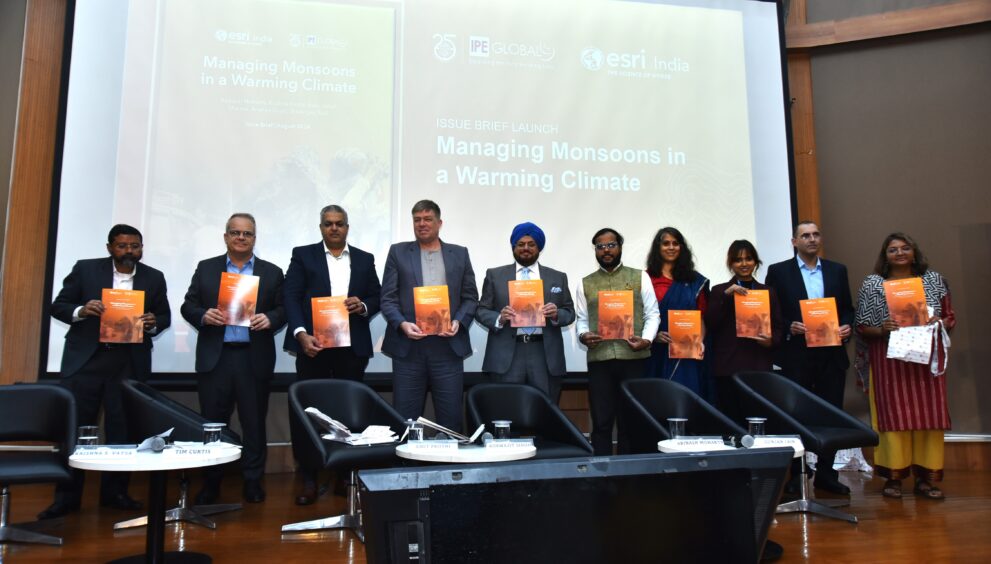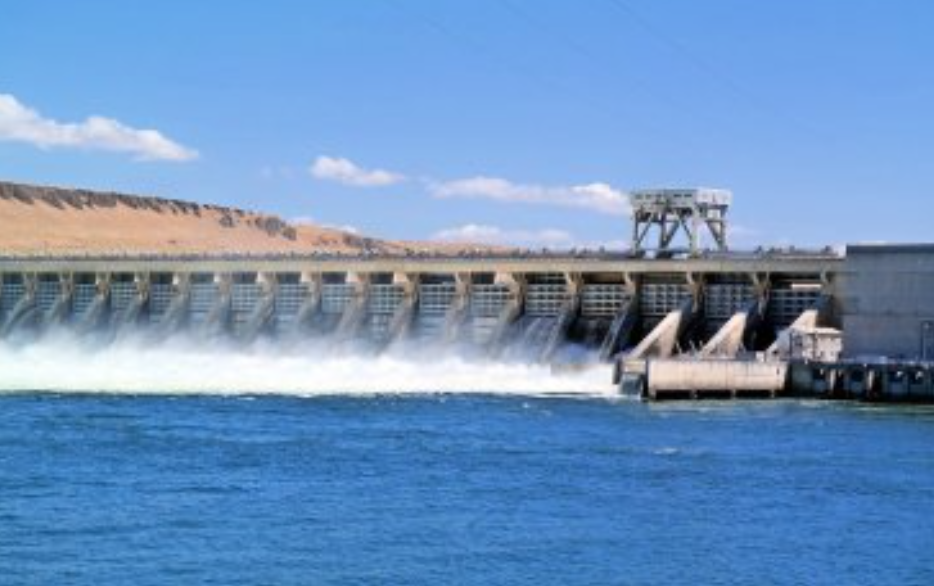Climate Change Intensifies Monsoon Extremes in India, Study Finds

A recent study has revealed that over 84 per cent of Indian districts are now exposed to extreme heat waves, with 70 per cent experiencing increased frequency and intensity of extreme rainfall events. The study, titled “Managing Monsoons in a Warming Climate,” conducted by IPE Global and Esri India, was released at an event at UNESCO Auditorium in Delhi. The event saw the presence of Tim Curtis, Director and Representative of UNESCO New Delhi Regional Office for South Asia; Krishna S Vatsa, Member of the National Disaster Management Authority; and Ashwajit Singh, Founder & Managing Director of IPE Global.
The findings come at a crucial time as climate change-induced anomalies disrupt traditional weather patterns. India has seen a 15-fold increase in extreme heat wave days during the March-May and June-September periods over the last three decades, with the last decade alone witnessing a 19-fold surge. Monsoon seasons are now marked by extended summer-like conditions, interrupted only by unpredictable and severe downpours.
“The current trend of catastrophic extreme heat and rainfall events results from a 0.6°C temperature rise over the last century. Our analysis suggests that by 2036, eight out of ten Indians will be highly exposed to extreme climate events. This underscores the urgent need for hyper-granular risk assessments and the establishment of climate-risk observatories to safeguard Indian agriculture, industry, and infrastructure,” stated Abinash Mohanty, Head of Climate Change and Sustainability Practice at IPE Global and author of the study.
The study highlights the double burden faced by states such as Gujarat, Rajasthan, Uttarakhand, Himachal Pradesh, Maharashtra, Uttar Pradesh, Meghalaya, and Manipur, which are grappling with both extreme heat and erratic rainfall. Coastal regions like Gujarat, Tamil Nadu, Andhra Pradesh, Odisha, and Maharashtra, as well as plains states including Uttar Pradesh, Rajasthan, and Madhya Pradesh, are identified as extreme heatwave hotspots.
Ashwajit Singh, Founder and Managing Director of IPE Global, noted the broader implications of these findings. “There is a 59 per cent chance that 2024 will be the warmest year on record and a 100 per cent chance it will rank in the top five. Climate change is a ‘Code Red’ crisis, exacerbating existing challenges and threatening to drag millions into poverty. The International Labor Organization estimates that India could lose more than 40 million jobs by 2030 and suffer a 2.8 per cent GDP loss by 2050 due to extreme heat waves. We must adopt innovative, data-driven strategies to turn environmental risks into competitive advantages,” Singh asserted.
Tim Curtis, Director and Representative of the UNESCO New Delhi Regional Office for South Asia, emphasised the crucial role of global cooperation in building resilience and conserving biodiversity. “UNESCO plays a role in building this global culture of resilience. As the United Nations organization with a mandate for education, sciences, and culture, we develop and coordinate global standards and programs with an approach that links nature and culture to conserve biodiversity and use it sustainably, integrated into disaster risk reduction efforts,” he stated.
The study suggests several strategic actions to address these challenges. These include the establishment of a Heat Risk Observatory (HRO) to identify and project chronic and acute heat risks, developing risk financing instruments to mitigate heat and extreme rainfall impacts, and appointing heat-risk champions within district disaster management committees to unify mitigation efforts at the local level.




































































































































































































































































































































































































































































































































































































































































































































































































































































































































































































































































































